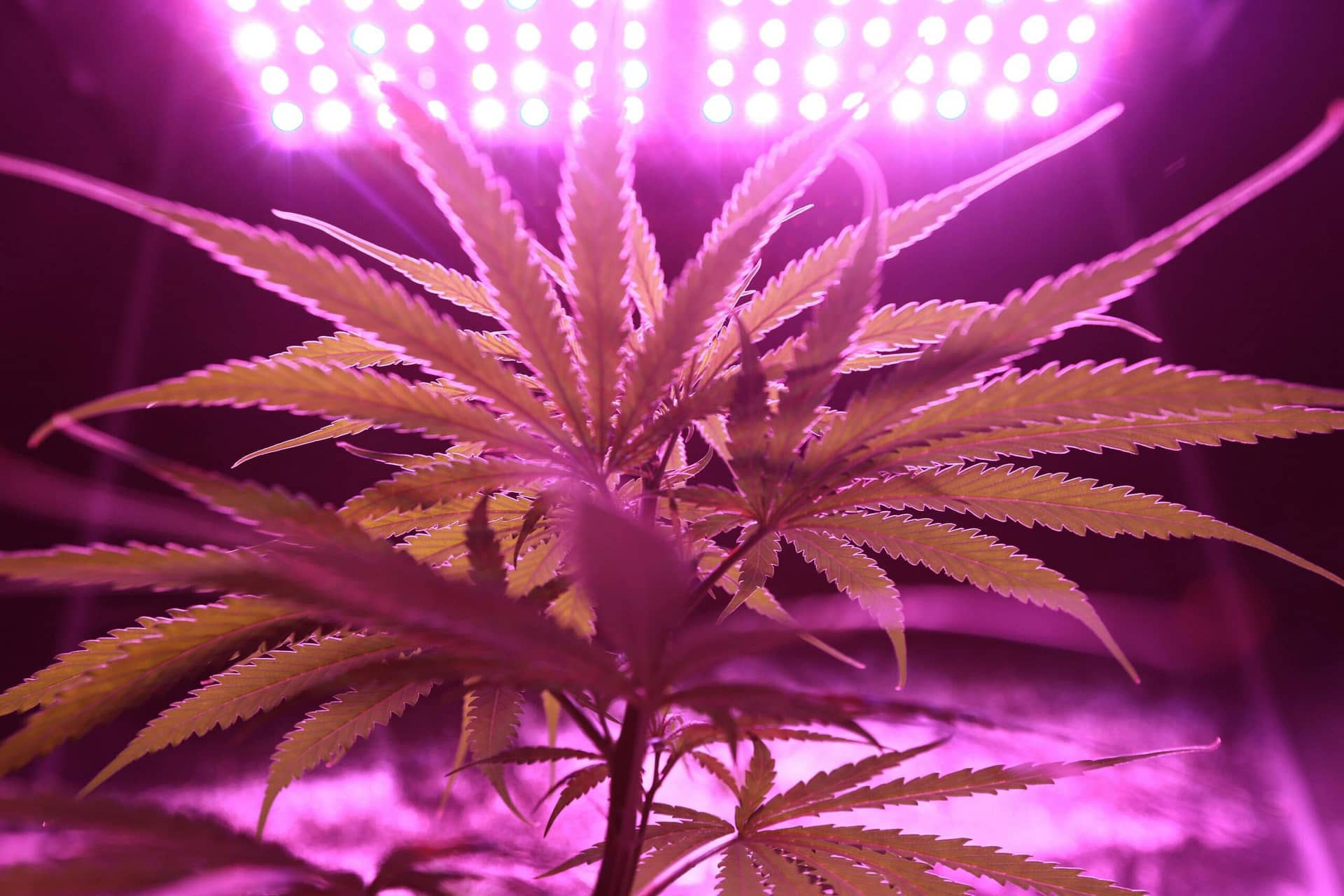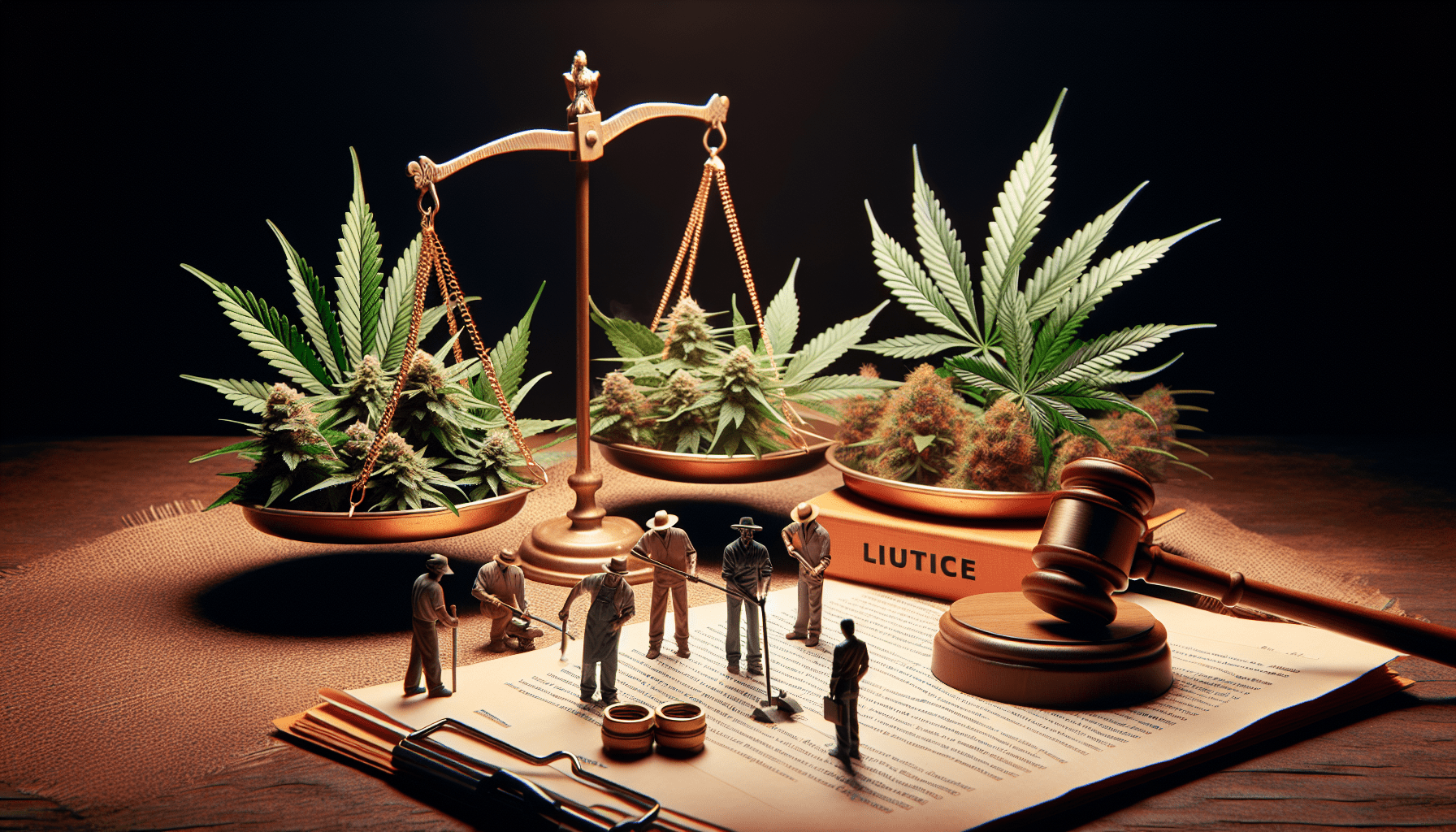So you’re curious about the legal battles that have shaped the cannabis industry? Well, look no further. This article explores some of the most significant court cases that have made an impact on the rapidly evolving world of cannabis. From groundbreaking rulings to controversial decisions, these cases have set important precedents and shed light on the complex legal landscape surrounding cannabis. Let’s dive into the courtroom drama and unravel the stories behind these notable court cases in the cannabis industry.
Federal vs. State Laws
Challenges in enforcing federal laws in states that have legalized cannabis
Enforcing federal laws regarding cannabis in states where it has been legalized presents significant challenges. The main issue arises from the conflict between state laws, which allow for the cultivation, possession, and use of cannabis, and federal laws, which still classify marijuana as an illegal substance. This conflict creates a complicated legal landscape where federal authorities may choose to enforce federal laws despite state legalization efforts. Moreover, federal law enforcement agencies often face limited resources, making it difficult to fully enforce federal marijuana laws in states where the plant is legal.
Conflict between state rights and federal supremacy
The conflict between state rights and federal supremacy is at the heart of the cannabis legalization issue. While states have the power to create and enforce their own laws, federal laws maintain supremacy over conflicting state laws. This creates tension when it comes to cannabis, as some states have chosen to legalize it for medicinal or recreational purposes despite federal prohibition. This conflict has resulted in a patchwork of regulations and a lack of cohesion in how cannabis is treated throughout the United States.
Supreme Court cases regarding federal vs. state laws
Several Supreme Court cases have played a crucial role in shaping the relationship between federal and state laws concerning cannabis. One significant case is Gonzales v. Raich (2005), in which the Supreme Court upheld the federal government’s authority to enforce its ban on the cultivation and use of marijuana, even in states that have legalized it. This decision affirmed the federal government’s power to regulate cannabis, maintaining the conflict between federal and state laws. Other cases, such as United States v. Oakland Cannabis Buyers’ Cooperative (2001), have further solidified federal control over marijuana despite state legalization efforts.
Landmark Legalization Cases
California’s Proposition 64: Legalizing recreational cannabis
California’s Proposition 64, also known as the Adult Use of Marijuana Act, was a groundbreaking initiative that legalized recreational cannabis in the state. Passed in 2016, Proposition 64 allowed adults aged 21 and older to possess, cultivate, and use marijuana for non-medical purposes. This move by California, a state with a significant population and economy, set a precedent for other states considering the legalization of recreational cannabis.
Massachusetts and Nevada legalizing recreational cannabis
Following in the footsteps of California, Massachusetts and Nevada also made significant strides in legalizing recreational cannabis. In 2016, Massachusetts voters approved the legalization of recreational marijuana, allowing individuals aged 21 and older to possess and use cannabis. Nevada’s legalization efforts were successful in the same year, with voters approving the Regulation and Taxation of Marijuana Act. These landmark cases expanded the legalization movement and brought cannabis into the mainstream in multiple states.
Challenges to legalization initiatives
While many states have successfully passed legalization initiatives, they are not without challenges. These challenges often manifest in legal battles over the implementation and regulation of legalized cannabis. For example, opponents of legalization may file lawsuits to challenge the validity of the initiatives or to push for stricter regulations. Additionally, conflicts can arise between state and local governments regarding zoning, taxation, and licensing issues. These challenges highlight the complexities and ongoing debates surrounding the legalization of cannabis.

Medical Marijuana Legalization
Emergence of medical marijuana as a legal industry
The emergence of medical marijuana as a legal industry has had a significant impact on the cannabis landscape. As more states legalize the medical use of cannabis, a regulated industry has developed to provide patients with access to safe and effective medical marijuana products. The growth of this industry has led to economic opportunities and job creation, benefiting both patients and the economy.
Legal battles over medical marijuana regulations
Although medical marijuana has gained acceptance in many states, legal battles have arisen over the regulations surrounding its use. These battles often involve conflicts between the state and federal governments, as well as disputes among stakeholders within the medical marijuana industry. Issues such as licensing requirements, patient eligibility, product safety standards, and dispensary locations have all been subjects of legal contention. Balancing the needs of patients, ensuring public safety, and complying with federal regulations remains a complex challenge.
Landmark cases supporting medical marijuana usage
Several landmark cases have played a pivotal role in establishing and protecting the rights of medical marijuana patients and providers. In the case of United States v. McIntosh (2016), the Ninth Circuit Court of Appeals ruled that the Department of Justice could not use federal funds to interfere with state-legal medical marijuana activities. This decision provided some protection for medical marijuana businesses operating in compliance with state laws. Other cases, such as Gonzalez v. Raich (2005), have had an impact, albeit indirectly, in supporting the medical use of cannabis by reinforcing the federal government’s regulatory authority over marijuana.
Cannabis Businesses vs. Federal Agencies
IRS tax disputes with cannabis businesses
Cannabis businesses face unique challenges when it comes to tax disputes with the Internal Revenue Service (IRS). Due to the federal illegality of cannabis, businesses operating legally under state laws are unable to take advantage of typical tax deductions and credits available to other industries. This results in higher tax liabilities for cannabis businesses, making it more difficult for them to stay competitive. Additionally, IRS audits and investigations can create additional financial burdens and legal uncertainties for cannabis businesses.
DEA and DOJ raids on cannabis dispensaries
The Drug Enforcement Administration (DEA) and the Department of Justice (DOJ) have conducted raids on cannabis dispensaries despite state legalization efforts. In states where cannabis is legal, these raids pose a challenge to the regulatory framework established by state laws. Moreover, they create uncertainty and fear among cannabis businesses and patients, as federal crackdowns can lead to the seizure of assets and criminal charges. The clash between federal agencies and state laws underscores the ongoing conflict and its impact on the cannabis industry.
Legal challenges to federal agency actions
Legal challenges have been mounted against federal agency actions targeting the cannabis industry. These challenges often focus on issues of federalism and the authority of federal agencies to impede the implementation of state laws. The outcome of these legal battles could have a significant impact on the trajectory of federal enforcement actions against the cannabis industry. Recent court rulings have started to shed light on the limits of federal agency actions and the role of states in regulating cannabis.

Employment and Discrimination Cases
Workplace policies and drug testing
Workplace policies and drug testing in states where cannabis is legal can be a contentious issue. Employers may have policies that prohibit the use of cannabis, even outside of working hours, leading to potential conflicts with employees who use medical or recreational marijuana within the bounds of state law. Drug testing procedures can further complicate the matter, as residual cannabis compounds can be detected in an individual’s system days or even weeks after use, making it difficult to establish impairment at the time of testing.
Termination and discrimination based on cannabis use
Termination and discrimination based on cannabis use are potential consequences faced by employees in the cannabis industry. Despite state legalization efforts, employers may still choose to terminate or refuse to hire individuals who test positive for cannabis, even if they are using it legally under state laws. This raises questions of fairness and the impact of employment decisions on individuals who rely on marijuana for medical purposes. Legal protections against such discrimination are still evolving and can vary across jurisdictions.
Legal rights of employees in the cannabis industry
Employees in the cannabis industry, like any other industry, have legal rights that protect them from unfair treatment. These rights include protection against discrimination, the right to a safe working environment, and the right to reasonable accommodations for disabilities. However, the interplay between state and federal laws can complicate the enforcement of these rights, leaving employees in the cannabis industry with limited recourse in cases of unfair treatment. The evolving legal landscape will play a crucial role in determining the extent of protection offered to employees in the cannabis industry.
Trademark and Intellectual Property Cases
Trademark protection for cannabis companies
Trademark protection presents a unique challenge for cannabis companies due to federal prohibition. The U.S. Patent and Trademark Office (USPTO) typically does not grant trademarks for products that are illegal under federal law. As a result, cannabis companies face difficulties in obtaining federal trademark registrations, which limits their ability to protect their brands and intellectual property. Some companies have explored alternative strategies, such as trademarking ancillary products or acquiring state-level trademark protection.
Challenges in obtaining trademark registrations
Obtaining trademark registrations can be challenging for cannabis companies due to the strict requirements set by the USPTO. The federal prohibition of cannabis complicates the trademark application process, as companies must demonstrate that their products comply with federal law, despite operating legally under state laws. Additionally, securing federal trademark protection can be costly and time-consuming, making it a significant hurdle for businesses in the cannabis industry.
Copyright and patent disputes in the industry
Intellectual property disputes, including copyright and patent disputes, are becoming more prevalent in the cannabis industry. These disputes often involve claims of infringement, misappropriation of trade secrets, or the unauthorized use of branding and marketing materials. Due to the lack of federal protection for cannabis-related intellectual property, navigating these disputes can be challenging. Companies in the industry must rely on state-level intellectual property laws and common law principles, which limits their ability to enforce and protect their intellectual property rights.

Criminal Cases and Cannabis Offenses
High-profile criminal cases related to cannabis
Numerous high-profile criminal cases have showcased the shortcomings and injustices of cannabis-related criminal offenses. The prosecution and sentencing of individuals for non-violent cannabis offenses have drawn public attention and fueled calls for criminal justice reform. These cases highlight the need to revisit and potentially expunge past convictions related to cannabis, given the evolving perspectives and legalization efforts across the country.
Resentencing and expungement of past cannabis convictions
In light of changing attitudes towards cannabis and its legalization, there has been a push for resentencing and expungement of past cannabis convictions. Many advocates argue that individuals who were convicted for offenses that are now legal or decriminalized should have their records cleared or sentences reconsidered. States such as California and Illinois have implemented measures to address this issue, with the goal of rectifying the impact of past cannabis convictions on affected individuals.
Legalization’s impact on the criminal justice system
The legalization of cannabis has had a profound impact on the criminal justice system. It has reduced the number of arrests and prosecutions related to cannabis offenses, freeing up resources that can be reallocated towards more pressing matters. Additionally, it has prompted a reevaluation of sentencing guidelines and policies surrounding cannabis crimes. However, challenges remain, particularly in addressing past convictions and ensuring equitable access to the benefits of legalization within marginalized communities disproportionately affected by the war on drugs.
Banking and Finance Challenges
Limited banking options for cannabis businesses
Cannabis businesses face limited options when it comes to banking and financial services. Due to federal prohibition, many traditional banks are hesitant to work with cannabis-related businesses, fearing legal repercussions and regulatory scrutiny. This lack of access to banking services forces cannabis companies to operate primarily on a cash basis, which poses significant challenges in terms of security, transparency, and compliance with tax regulations.
Challenges in obtaining loans and financial services
In addition to limited banking options, cannabis businesses also face challenges in obtaining loans and other financial services. The federal illegality of cannabis makes it difficult for companies in the industry to secure funding from traditional sources. Lenders and financial institutions often perceive the cannabis industry as high-risk, leading to higher interest rates, stricter collateral requirements, or outright denial of loans. This hinders the growth and development of cannabis businesses, limiting their ability to operate efficiently and expand their operations.
Proposed legislation for enabling cannabis banking
To address the banking and finance challenges faced by the cannabis industry, proposed legislation seeks to enable cannabis banking at the federal level. The Secure and Fair Enforcement (SAFE) Banking Act, for example, aims to protect financial institutions that provide services to cannabis-related businesses operating legally under state laws. This legislation, if passed, would provide a safe harbor for banks and credit unions and alleviate some of the challenges that cannabis businesses face in accessing traditional financial services.

Advertising and Marketing Restrictions
Regulations on cannabis advertising and promotion
Cannabis advertising and promotion are subject to strict regulations due to concerns about underage access, public health, and the potential for abuse. Federal and state laws impose restrictions on the content, placement, and audience targeting of cannabis advertisements. These regulations aim to strike a balance between allowing businesses to promote their products and ensuring responsible marketing practices that do not appeal to minors or encourage excessive consumption.
Challenges to restrictions on free speech
Restrictions on cannabis advertising and promotion have faced challenges under the concept of free speech. Some argue that regulations limiting the ability of cannabis businesses to advertise impede their First Amendment rights. Litigation has occurred in various jurisdictions, with courts weighing the government’s interest in regulation against the free speech rights of cannabis businesses. The outcome of these legal battles will shape the regulatory environment for cannabis advertising and the extent to which businesses can promote their products.
Court rulings on cannabis marketing practices
Court rulings on cannabis marketing practices have varied, with jurisdictional differences shaping the outcomes. In some cases, courts have upheld strict regulations on cannabis advertising, citing the need to protect public health and prevent cannabis use among vulnerable populations. Other courts have struck down certain advertising restrictions, emphasizing the importance of free speech and commercial expression. These rulings reflect the ongoing debate surrounding cannabis marketing practices and the evolving balance between regulatory control and constitutional rights.
Product Liability and Consumer Safety
Lawsuits over defective cannabis products
As the cannabis industry expands, the potential for lawsuits over defective products increases. Consumers who experience adverse effects from cannabis products may pursue legal action, alleging product defects, inadequate warnings, or manufacturing errors. These lawsuits can have significant financial implications for cannabis businesses and demand a robust focus on product safety and quality control. Ensuring consumer safety through rigorous testing, clear labeling, and appropriate warnings becomes crucial for businesses operating in this evolving industry.
Regulatory measures to ensure consumer safety
Regulatory measures are in place to ensure consumer safety in the cannabis industry. These measures include testing requirements, quality control standards, and the establishment of regulatory bodies tasked with overseeing the safety and efficacy of cannabis products. Adherence to these regulations helps to minimize the risks associated with cannabis consumption and promotes consumer confidence in the industry. Ongoing monitoring and adjustment of these measures are essential as the industry continues to evolve.
Legal responsibility of cannabis businesses
Cannabis businesses have a legal responsibility to ensure the safety of their products and protect consumers from harm. Any negligence or violations of regulations related to product safety and quality control can lead to legal consequences, including lawsuits, monetary damages, and reputational damage. It is incumbent upon cannabis businesses to stay updated on the evolving regulations and industry best practices to fulfill their legal responsibility and maintain consumer trust.
In summary, the cannabis industry’s legal landscape is dynamic and complex, with federal and state laws often at odds. Enforcing federal laws in states with legalized cannabis presents significant challenges, and conflicts between state rights and federal supremacy persist. Landmark cases, both supporting and challenging cannabis legalization, have played a crucial role in shaping the industry. Additionally, legal battles have emerged regarding medical marijuana regulations, trademark and intellectual property rights, employment and discrimination, criminal cases and offenses, banking and finance challenges, advertising and marketing restrictions, product liability, and consumer safety. As the industry continues to grow, it is essential to navigate the legal intricacies and work towards establishing a cohesive and comprehensive framework that protects all stakeholders involved.
